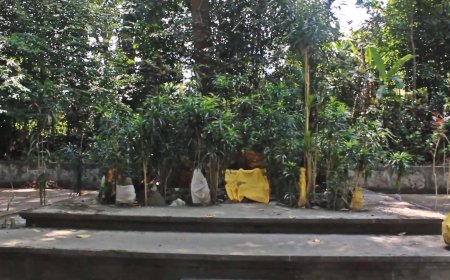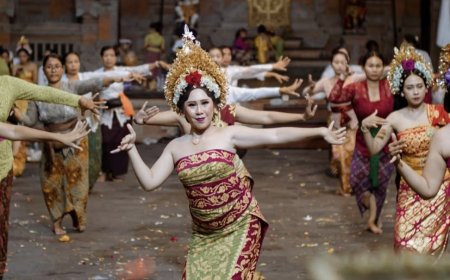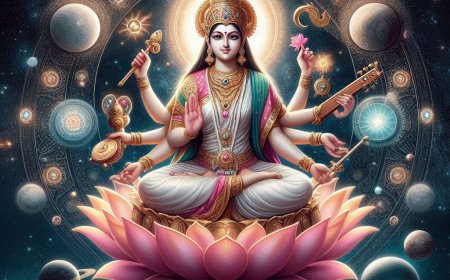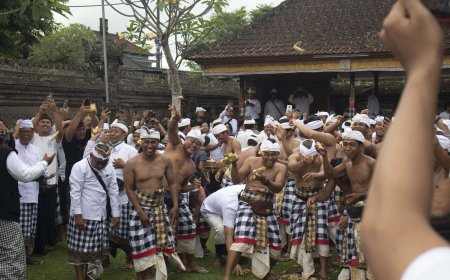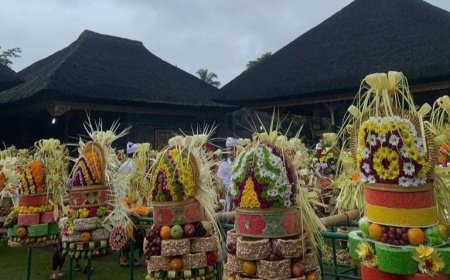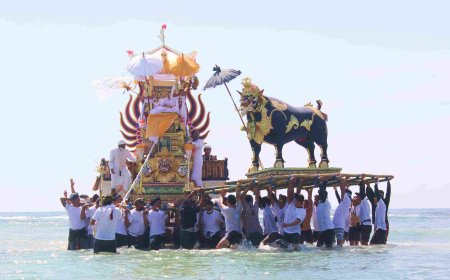The Mapedanan Procession in the Ngenteg Linggih Ceremony
The Mapedanan Procession is a tradition in the peak series of the Ngenteg Linggih Ceremony, symbolizing the release of negative traits such as greed and envy, performed by competing to seize symbolic objects called Pedanan. Beyond serving as a medium for introspection and self-purification, this tradition teaches the value of Dana Punia or selfless sharing with others.
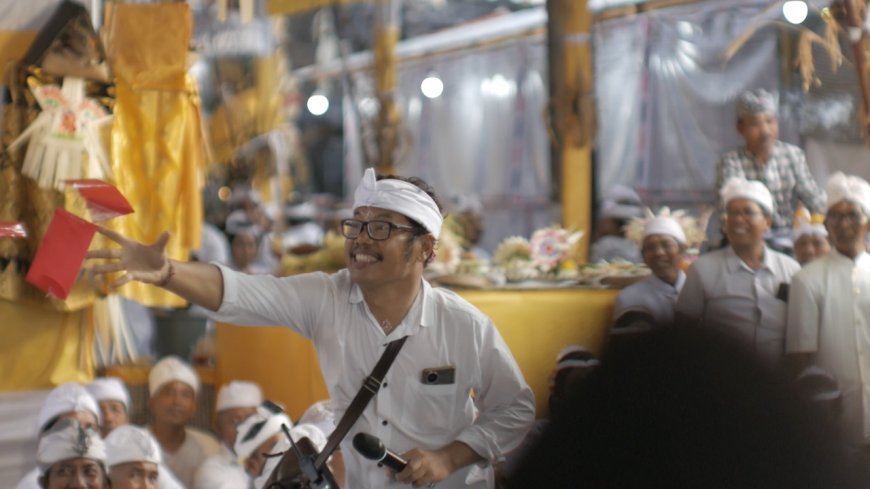
The Mapedanan procession is a significant ritual within the pinnacle of the Ngenteg Linggih ceremony. It is not only a cultural tradition but also holds profound philosophical meaning. Conducted in a communal setting, participants eagerly compete to seize items referred to as "Pedanan." This tradition conveys moral messages about self-purification and the strengthening of social values. Through this procession, society is encouraged to reflect on the essence of true life values.
At its core, the Mapedanan procession symbolizes the release of negative traits within humans. Negative characteristics such as greed, envy, and selfishness are symbolically transferred into the Pedanan items. When participants strive to grab these items, they are expected to release their negative energy and replace it with purity of heart. This process becomes a profound reflection, encouraging individuals to better themselves, becoming more sincere, pure, and free from the shackles of bad traits.
The Pedanan items often represent worldly temptations. The symbolic competition serves as a reminder for participants to introspect and control themselves from negative traits that could disrupt personal and social harmony. This tradition emphasizes the importance of self-control in facing life's temptations. Thus, the Mapedanan procession serves not only as a religious ritual but also as a life lesson relevant to every individual.
Additionally, this procession provides an opportunity for individuals to rid themselves of negative energy that may hinder spiritual growth. The act of seizing Pedanan items is not merely a physical competition but a symbol of inner transformation. By engaging in this act, participants are reminded of the awareness that meaningful life begins within oneself.
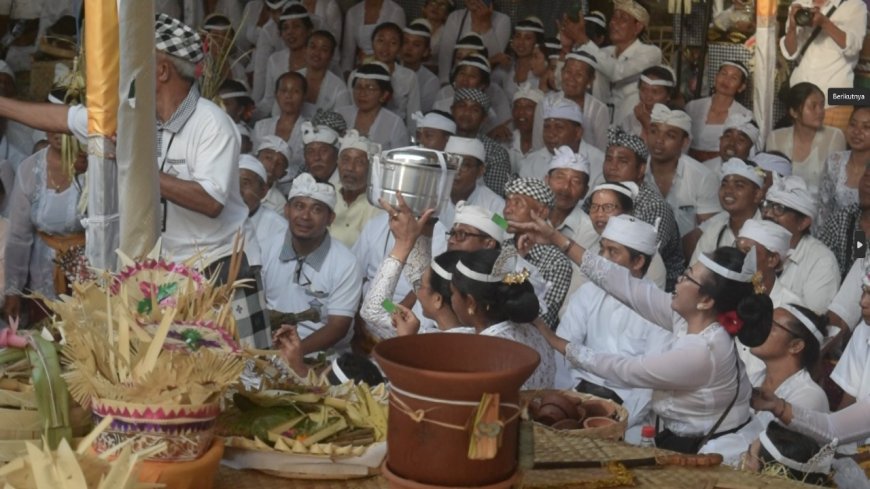
A Resident Receiving a Pedanan Item (Photo Source: Personal Collection)
An essential element of the Mapedanan procession is the value of "Dana Punia" or the act of giving with genuine sincerity. The Pedanan items are provided by the host family conducting the ceremony, yet they are prohibited from participating in the competition. Instead, priority is given to those outside the family, reflecting a spirit of sharing and prioritizing others' needs as a form of social care.
Dana Punia embodies the fundamental principle of life that balances giving and receiving. True happiness arises not only from what we gain but also from how much we give and share with sincere intentions. The practice of Dana Punia teaches the importance of empathy and generosity as the foundation of harmonious social relationships.
Furthermore, Dana Punia underscores that true wealth lies in one's ability to give selflessly. Sharing with others, especially those in need, is a form of self-purification that instills gratitude and joy in life. This tradition serves as a reminder that in giving, we discover the deeper meaning of life.
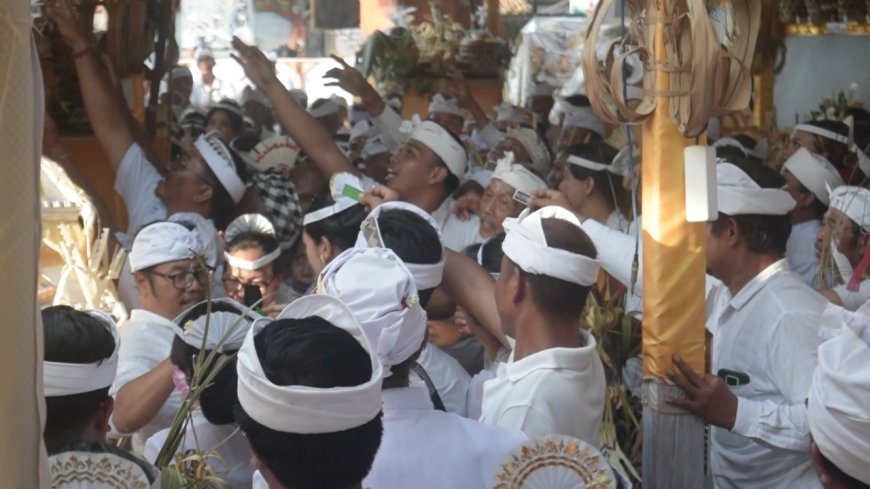
Community Enthusiasm in the Mapedanan Procession (Photo Source: Personal Collection)
The Mapedanan procession also symbolizes the spirit of togetherness and harmony. The communal competition creates moments of joy and strengthens relationships among individuals in society. Regardless of social status, all members unite in the shared enthusiasm that defines this tradition.
This togetherness is evident in how communities gather, collaborate, and support one another during the procession. The tradition highlights that social harmony can be achieved through collaboration and mutual respect for shared values. Thus, the Mapedanan procession serves as both a means of self-purification and a tool for reinforcing social bonds.
Moreover, interactions during the Mapedanan procession create opportunities for mutual understanding and respect. The presence of diverse social groups in the procession demonstrates how tradition can be a unifying force. The symbolic competition for Pedanan items, conducted with sportsmanship, reflects how noble values can be applied in social life.
Although rooted in ancient tradition, the values embodied in the Mapedanan procession remain relevant in modern life. Self-purification from negative traits and care for others are universal principles applicable to daily living. This tradition teaches that true happiness is not only derived from what we gain but also from what we give to others.
Amid the challenges of modern life, which often emphasize individualism and pressure, values such as sincerity, sharing, and togetherness become increasingly important. The Mapedanan procession reminds us to maintain a balance between personal needs and social care. It also underscores the importance of introspection to improve oneself and foster better relationships with others.
In a fast-paced modern era, this tradition emphasizes the significance of taking time for self-reflection. Amid daily busyness, the Mapedanan procession serves as a reminder of the importance of balancing material and spiritual aspects of life.
More than just a ritual, the Mapedanan procession is a reflection of local wisdom relevant across time. This tradition teaches noble values such as sincerity, empathy, and togetherness, which are crucial in the modern era. By participating in this tradition, society is encouraged to reflect on the essence of life, improve themselves, and establish more harmonious relationships with others and the universe.
As a cultural heritage rich with meaning, the Mapedanan procession must be preserved and passed on to future generations. This tradition is not merely about maintaining culture but also about conveying moral messages that can serve as life guidance. By understanding and preserving this tradition, we contribute to maintaining social and spiritual harmony in daily life.
The Mapedanan procession manifests noble values, teaching self-purification, social care, and the spirit of togetherness. In the modern context, this tradition reminds us of the importance of introspection, sharing, and balancing personal needs with social responsibilities. Thus, the Mapedanan procession transcends being a religious ritual and becomes a timeless guide for life, a treasured heritage to be safeguarded and passed on to create a harmonious and compassionate society.
